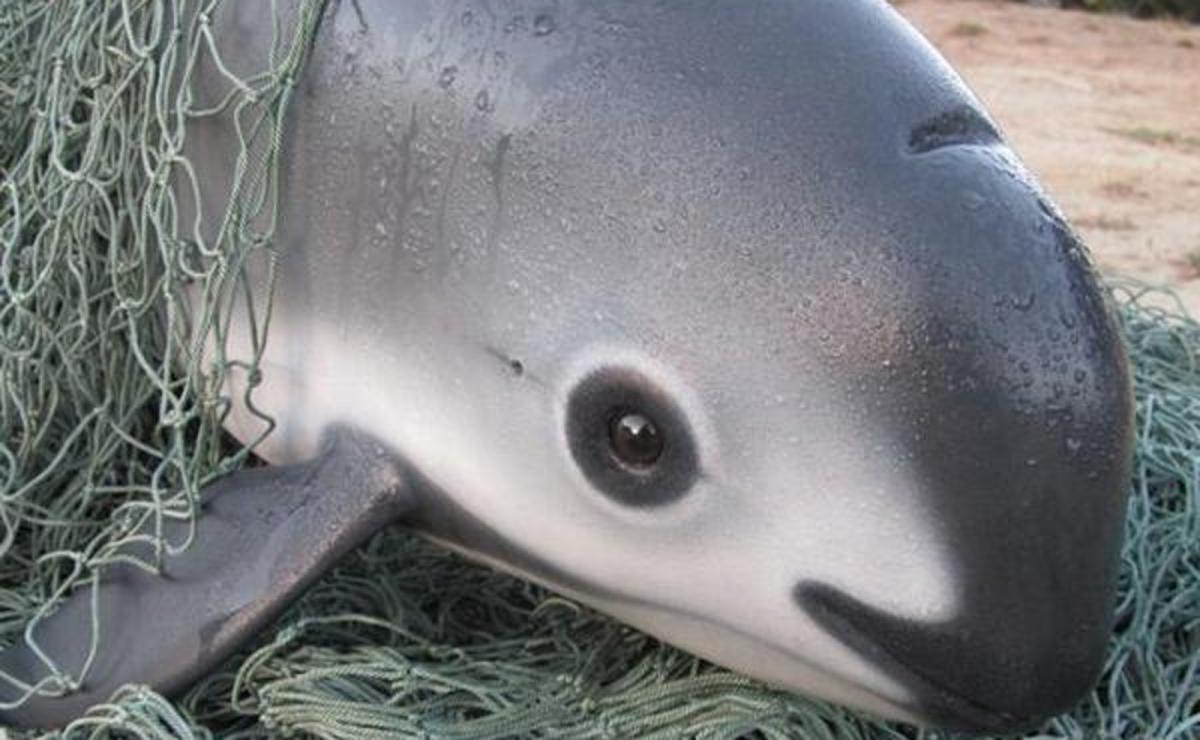Mexico in last ditch effort to save the vaquita porpoise

The vaquita is the world’s smallest marine mammal, and only lives in the Gulf of California. Experts believe there are only about 30 vaquitas in the wild today.
International Save the Vaquita Day on 8 July is more than an attempt to raise awareness about the imminent demise of this creature. It’s a call to urgent action.
The smallest of all porpoises, dolphins and whales, the unique vaquita, is facing extinction due to the fishing of totoaba in the Gulf of California (Sea of Cortez).
The totoaba itself is an endangered fish that has the highest level of protection from the Convention on the International Trade in Endangered Species (CITES) — no international trade is allowed — but is still captured due to demand for its swim bladder primarily in China. Vaquitas drown when they get caught in the huge gillnets used for commercial fishing and can’t get to the surface for air.
A January 2017 report states that the vaquita population has declined to about 30 individuals. This represents more than a 92 per cent decrease in the population since 1997.
On 7 June 2017, it was announced by President Nieto of Mexico that the gillnet ban would be extended and made permanent. There will also be newly strengthened efforts to enforce the ban and prosecute violators.
To discourage skirting the rules, fishing at night will be prohibited and monitored entry and exit points will be established for fishing vessels that operate in the protected zone. The agreement was signed by the President, as well as the Mexican Secretaries for the Environment, Agriculture and Navy.
Further, it has been determined that capture of some of the remaining vaquitas to conduct a captive breeding program within a secure sanctuary is the only remaining hope for survival.
The proposal for a captive breeding program will be challenged by the difficulty of keeping porpoises in captivity, relative to dolphins, due to porpoises' sensitivity to disturbance and stress.
Success in keeping captive porpoises has only been attained in recent years. This scheme involves the use of trained dolphins of the U.S. Navy to locate the vaquitas, along with aircraft and a spotter vessel with an observation tower. The vaquitas will be captured with a light salmon gillnet. Some of the vaquitas might be satellite-tagged and released for research purposes, while others would be kept captive. The latter vaquitas would be transferred to sea pens along the shore of the gulf, with large pools on land also available for special care if needed. Once success was attained in the campaign to eliminate the threat of gillnets, captive vaquitas could then be released back into the wild.
A similar rescue mission was done successfully with the American condor capture in the 1980s, whereby all of the wild birds were brought in for captive breeding. There are now are over 200 in the Pacific North West alone.
The foundations of Mexican businessman Carlos Slim and American actor and environmental activist Leonardo DiCaprio also pledged to support implementation of the plan to save the vaquita.
UN Environment is adding the vaquita as the 14th species in its Wild for Life campaign.
Vaquita fast facts
· The vaquita has only been known to science since 1958.
· Vaquita means “little cow” in Spanish.
· At about 1.5 m long, it’s the smallest species of cetacean.
· The range (ca. 4,000 sq km) is only about 1/4 the size of metropolitan Los Angeles.
· Unlike other porpoises, vaquitas give birth only every other year
· Calves are born in March/April.
· They live to be about 20-21 years old.
· Vaquitas have never been held captive in aquaria.
· The vaquita is the rarest and most-endangered species of marine mammal in the world.
Further reading: Affluent Chinese are putting two Mexican species at risk due to demand for dried swim bladders.
For further information: [email protected]